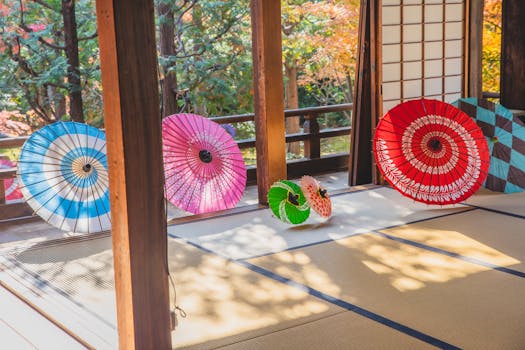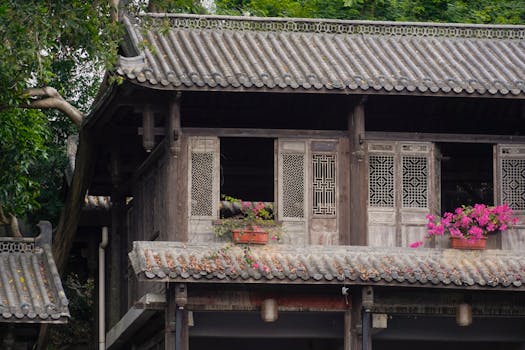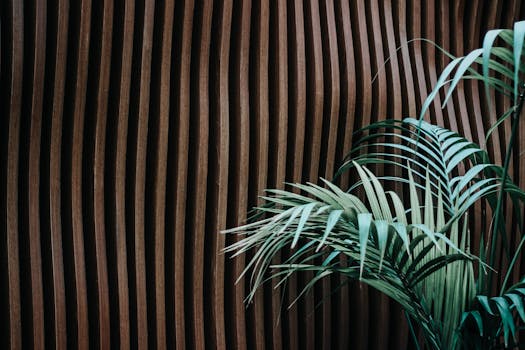
The Influence of Japanese Aesthetics on Global Design
Takeaways: Japanese aesthetics emphasize simplicity, natural materials, and the beauty of imperfection. These principles have permeated various design fields worldwide, inspiring movements like minimalism and fostering a deeper appreciation for nature in design.
Japan’s rich cultural heritage and unique aesthetic philosophy have significantly influenced global design trends over the years. Concepts such as wabi-sabi and the principles of Zen have led designers to adopt a more mindful approach to aesthetics, focusing on simplicity and the beauty of imperfection. This article explores the profound impact of Japanese aesthetics on architecture, interior design, product design, and even digital interfaces, illustrating how these principles have shaped contemporary design practices around the world.
The Roots of Japanese Aesthetics
Japanese aesthetics are deeply rooted in the country’s history, philosophy, and natural environment. Traditional Japanese art and design often reflect a profound connection with nature, showcasing an appreciation for organic forms, textures, and colors. One of the fundamental concepts in Japanese aesthetics is wabi-sabi, which celebrates the beauty of imperfection and transience. This idea is often contrasted with the Western ideals of perfection and permanence.
Wabi-sabi finds expression in various forms, from the rustic simplicity of a hand-thrown ceramic bowl to the delicate beauty of a fading flower. The notion that beauty can be found in the imperfect and the ephemeral invites designers to embrace flaws and irregularities, leading to more authentic and expressive creations.
Another essential aspect of Japanese aesthetics is the concept of ma, which refers to the space between objects. This idea emphasizes the importance of negative space in design, encouraging a minimalistic approach that allows for breathing room and contemplation. In contrast to cluttered designs, the Japanese aesthetic champions simplicity, clarity, and balance.
Japanese Aesthetics in Architecture
Japanese architecture is a prime example of how aesthetics can influence design on a grand scale. Traditional Japanese houses, or minka, are characterized by their use of natural materials, open spaces, and a seamless connection to the surrounding landscape. This design philosophy has inspired architects worldwide, leading to a greater emphasis on sustainability and harmony with nature.
Modern architects such as Tadao Ando and Kengo Kuma have incorporated traditional Japanese principles into contemporary designs. Ando’s concrete structures often feature large windows that frame views of nature, blurring the lines between indoors and outdoors. Kuma’s designs utilize natural materials and embrace the surrounding environment, creating spaces that feel organic and integrated into their settings.
The minimalist approach seen in Japanese architecture has also influenced urban design, leading to cleaner lines and open layouts in cities around the globe. The use of natural light, open spaces, and a focus on communal areas can be traced back to these enduring Japanese principles.
Japanese Aesthetics in Interior Design

One of the most notable influences is the use of tatami mats, which create a warm, inviting atmosphere. The simplicity of tatami encourages a connection to the earth, and their neutral colors allow for versatility in design. Furthermore, the incorporation of nature through indoor plants and natural light reflects the Japanese appreciation for the natural world.
Designers in different cultures have adopted these principles, leading to the rise of biophilic design, which seeks to connect people with nature within interior spaces. This trend aligns with the Japanese idea of fostering harmony between humans and their environment, promoting well-being and a sense of peace.
Japanese Aesthetics in Product Design

Muji, known for its “no-brand” approach, emphasizes quality and sustainability. Their products feature clean lines and neutral colors, embodying the essence of Japanese design. Similarly, Nitori combines modern design with traditional Japanese elements, offering a wide range of home goods that reflect a harmonious balance of style and functionality.
The concept of kawaii, or cuteness, has also influenced product design, leading to playful and whimsical designs that resonate with consumers worldwide. This aspect of Japanese culture shows that aesthetics can be both functional and emotionally engaging.
Conclusion






